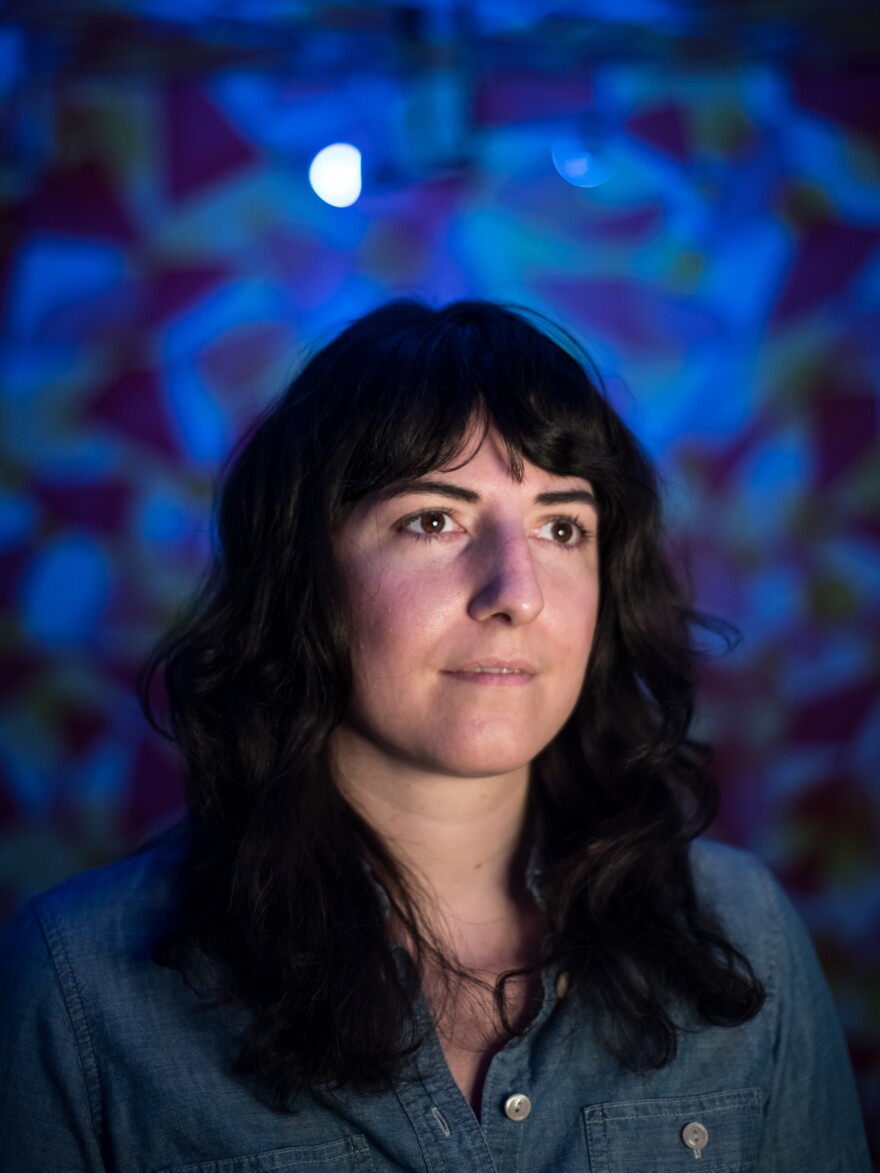New York City is testing a new model of workforce training for the future.
In October, the city partnered with the Freelancers Union to open the Freelancers Hub in Brooklyn. It's a kind of communal co-working space that offers classes, tax and legal advice — all at no cost — to the city's growing population of freelance workers.
Its goal: To equip this population with the skills they need, something many experts argue traditional education isn't doing.
The hub is the first freelance-focused workforce training program of its kind in the country. Its existence is a response to massive changes in the labor force.

Thanks in part to the expansion of gig-work apps, growth in freelance and contract work is far outpacing growth in full-time employment. But those workers also don't receive benefits, on-the-job training or other services traditionally offered by employers.
This is of particular concern to New York City, which estimates freelancers make up 38 percent of its workforce.
"That's a number that's going to continue to rise with the growth and advent of on-demand apps and other structural changes in the economy," says Julie Menin, NYC commissioner for media and entertainment.

In less than three months, the hub has signed up 4,000 members, including Nicholas Mc Millian. He gave up a successful, secure career as a firefighter in Trinidad and Tobago to pursue his passion for moviemaking.
After film school, he started freelancing, only to find his education left lots of practical gaps.
"They don't really prepare you for a career," he says. "They don't really say, 'All right, this is how you go out there and make money and support yourself.' " So until the hub opened, Mc Millian taught himself how to create websites, set prices, and negotiate and write contracts.

Located in Brooklyn, alongside the Independent Filmmaker Project, the hub is targeted at freelancers in creative fields where work is most competitive — design, photography, film and writing. It looks like a basic open office, with rows of desks, couches and small tables. Hub members can also access a small theater and classrooms, where workshops on topics like personal finance, benefits, and — its most popular — stress management take place.
Stress is an ever-present factor in freelance life, says Caitlin Pearce, executive director of the Freelancers Union, largely because all the work falls on their shoulders. They need to know how to do it all: budget for taxes and health insurance, and manage workflow and attract clients.

And that's not all, she says. "How do I brand myself? What business structure should look like. How do I actually plan for success? How much income do I need to earn?" These are all common questions independent workers have.
Software engineer Lupe Canaviri Maydana came to the Freelancers Hub seeking advice on work visas, legal contracts, and how to design and print business cards. The Bolivian native, who hopes to start freelancing next month, says she also found solidarity; she's made contacts with other freelancers — from artists to musicians and fashion models.
"Getting to know [those] kind of people and the way they do their freelancing ... it's kind of a new world," Maydana says.

The hub is a model the Freelancers Union hopes to expand upon; it plans to make its lectures available online. But Pearce says it also wants the physical space to foster networking and friendship among freelancers.
"Because the concept is really about finding the expertise and the resources that exist within the community already and really tapping into it and bringing it into one central place," she says.
All of the training classes, for example, are taught by other freelancers. That includes Brian Lee, who taught a digital marketing workshop to a packed room one recent evening.

Lee begins the class by telling them: Start thinking of yourself as a business.
"Freelancers don't want to spend money, even if it's software or tech that can help them grow their business," he says. "I think that's the fundamental shift that we have to make, because businesses grow by investing."
New York is not alone in identifying the need for workforce training targeted at freelancers and gig workers. The city of San Francisco offers online training courses for freelancers. Several companies, including General Assembly, LinkedIn and Skillshare, offer similar courses at far less cost than a conventional college course.
Matt Cooper, CEO of Skillshare, says the current education system and job-training programs aren't relevant to today's workforce needs.
"Particularly if you're a freelancer, your skills have to be up to date and cutting edge," he says. "Traditional and training models just don't work. You can't run down to the community college and take a class on the latest version of Adobe that just came out yesterday."
Cooper says his company also hopes to find ways to connect freelancers to one another, so they can share information and work together.
And that is the benefit that Freelancers Hub members say they most value.
Wendy Zhao, a film producer, says being around other freelancers helps her navigate the stress of lean times when paid work isn't available.
"I could do so much during this time instead of just being sad and lonely and desperate and depressed," she says. "I can learn more things, I can write, I can practice." And that, she says, will hopefully lead to more work.
Copyright 2023 NPR. To see more, visit https://www.npr.org.






